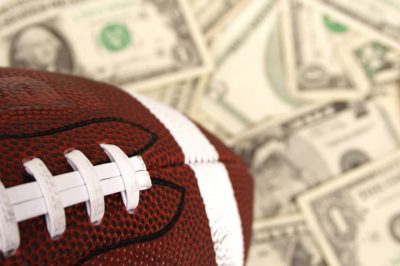 ESPN officially announced that it entered a 10-year partnership with casino company Penn Entertainment on August 8th to create ESPN Bet – an online sports betting brand aimed at helping the sports entertainment network set foot in the online gambling market.
ESPN officially announced that it entered a 10-year partnership with casino company Penn Entertainment on August 8th to create ESPN Bet – an online sports betting brand aimed at helping the sports entertainment network set foot in the online gambling market.
Under the terms of the $2-billion agreement, Penn Entertainment has dropped its online Barstool Sportsbook brand that will be remarketed as ESPN Bet this fall. As mentioned above, the company secured exclusive rights to the ESPN Bet trademark for the next 10 years, with an option to have its partnership extended for another 10. Three-quarters of the price ($1.5 billion) will be paid in cash for the use of ESPN’s name, marketing, promotional tools, access to ESPN talent, etc., and there will be an option for ESPN to buy $500 million in Penn Entertainment’s stock.
The agreement on the partnership deal was confirmed by ESPN chairman Jimmy Pitaro and Penn Entertainment’s chief executive officer Jay Snowden but both companies refused to comment any further on the transaction, saying that they would provide further details about the deal at the time when Penn unveils its quarterly financial results on August 9th.
Penn Entertainment Looking for a Better Established Presence in the Sports Betting Market
 As mentioned above, Penn Entertainment is practically selling its sports media company Barstool Sports back to its founder, David Portnoy. Earlier this year, the company took over the full control of the company from Mr. Portnoy, after first purchasing a partial stake in the entity in 2020. Since then, Barstool Sportsbook operated as the name of Penn Entertainment’s online sportsbook service, which was finding it hard to compete with the largest players in the digital sports betting market – FanDuel and DraftKings.
As mentioned above, Penn Entertainment is practically selling its sports media company Barstool Sports back to its founder, David Portnoy. Earlier this year, the company took over the full control of the company from Mr. Portnoy, after first purchasing a partial stake in the entity in 2020. Since then, Barstool Sportsbook operated as the name of Penn Entertainment’s online sportsbook service, which was finding it hard to compete with the largest players in the digital sports betting market – FanDuel and DraftKings.
That branding is now set to be replaced by the new ESPN Bet brand.
Mr. Portnoy confirmed and celebrated the news in a brief video posted on X (formerly known as Twitter), saying he was back in control of the brand he founded in 2003. Barstool’s founder referred to challenges associated with gambling regulatory bodies and from news articles about him that were primarily linked to allegations of sexual misconduct and misogynistic behavior.
The two companies are now joining forces in the quickly evolving sports betting sector that has been thriving in the US since the US Supreme Court’s decision to strike down the federal ban on this form of gambling. Five years after the law prohibiting most states from offering legal sports betting services was overturned, the sports betting sector in the country has exploded in popularity, with American adults having spent more than $220 billion in the form of sports wagers since 2018.
ESPN has already been synonymous with sports entertainment for many people. The company remains profitable, but its costs have been increasing lately, which is why it has been trying to find ways to compensate for these costs. The partnership with the company will now be expensive and probably risky for Penn Entertainment, especially considering the fact that it is valued only at approximately $3.8 billion. On the other hand, the Barstool branding did not seem to provide the sports betting service of Penn Entertainment with the enhanced market presence it had been hoping to get, so targeting a bigger brand such as ESPN actually makes sense.